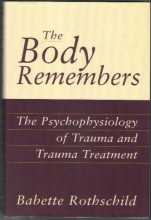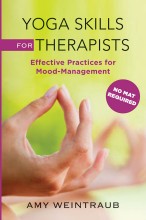
Why we Cry on the Yoga Mat
When I begin a workshop, I often ask how many people have cried on their yoga mat. Just about everyone raises their hand! Crying is a natural release, and often makes us feel better. This happens, according to Michael Trimble, author of Why Humans Like to Cry, because we stimulate the cranial nerves when we cry, which soothes the emotional limbic brain, in particular, that poor hyper-aroused amygdale.
When some people who have been shallow breathers for most of their lives begin to breathe deeply, emotion can arise unexpectedly. If tears come “for no reason” and unexpectedly, there is no reason to be afraid or feel shame, even if you’re in the middle of a yoga class. “Crying is one of the highest spiritual practices,” said Swami Kripalu. “One who knows crying, knows yoga.” When we cry on the yoga mat, there is rarely a story attached. Think of it as a release. That’s how the biochemistry of your brain sees it.
I worked with a client who had once maintained a twice weekly Power Yoga practice at a gym but, because of her husband’s job, she had recently moved from London to Tucson and had not practiced regularly in two years. Sally felt alone, since her six-year-old was in school for the first time all day and her husband often traveled on business. They had moved to a neighborhood where she felt she didn’t belong, and she had not yet made friends. Though she did not have a clinical diagnosis, she said she had gained weight, felt lethargic and except for bouts of irritability, she felt numb. Since her previous yoga experience did not focus on the breath, after setting the safe container during our first session, I suggested that she begin in a supine position, lying on her back. I supported her with a bolster under her back so that her chest was open and breathing was easier. I also placed a thin folded blanket beneath her head to tuck the chin forward slightly, which supports the mind to relax. Within a couple of minutes of deep, diaphragmatic breathing, she was sobbing. There was an immediate connection to the loneliness and anger she had felt as a young child, when her father died and her mother, overcome with grief, had not been emotionally available.
I brought her into a sitting position, so that she could breathe and then eventually to her feet, where we could more easily begin to move the emotion that had been triggered through her body. As she left, her eyes were shining and her face was serene, and she had a referral to two psychotherapists in our community.
 There are three important lessons for yoga and mental health professionals here. First, the importance of establishing the safe container, which not only gives the client or student permission to “put on the brakes,” as clinical social worker Babette Rothchild says in The Body Remembers (Rothchild, 2003), but also includes a normalization of the tears that can arise.
There are three important lessons for yoga and mental health professionals here. First, the importance of establishing the safe container, which not only gives the client or student permission to “put on the brakes,” as clinical social worker Babette Rothchild says in The Body Remembers (Rothchild, 2003), but also includes a normalization of the tears that can arise.
The second lesson is about staying present with your client throughout the practices you lead, and that means your own eyes are opened and you are monitoring her experience at all times.

The third lesson is how complementary yoga and psychotherapy actually are. When Sally began working with her body and her breath, she opened to a deeper sadness. She was finally ready to seek out talk therapy along with her return to the yoga mat, something that before our yoga session together, as miserable as she felt, she had not been motivated to do.
To read about clinical applications of yoga practice, see Yoga Skills for Therapists: Effective Practices for Mood Management.